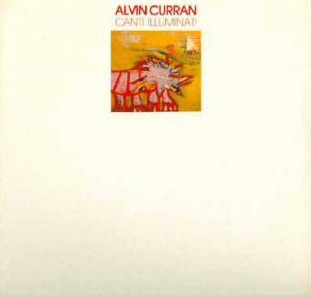CURRAN, ALVIN - Canti Illuminati
Couldn't load pickup availability
Complete reissue of the rare LP, originally issued by Fore in 1982, with original cover and liner notes, plus an updated presentation written by the composer. Two side-long beautiful piece for voices, synthesizer, tapes and electronics, and one of Currans best works. The music of this period and place, never a formal movement, was anchored both aesthetically and philosophically in the vital secrets of minimalism, in the sounds of the environment, however unassuming or flawed, in the cyclical generation of tones and voltage controlled substances, solo voice, and the whole body as solo performer, in men and women as equals, in stories of ordinary people, in gestures of eloquent simplicity as well as open spirituality, in irony as well as transcendental yearning. Improvisation and composition were reconciled as children of the same parents and immaculate mathematical structures could easily cohabit under the same roof with chance . Instrumental virtuosity and implacable drones were augmented to their human limits. And Rock music and musique concrete both contributed new values to amplification beat and noise. Canti Illuminati , was of course my early tribute to the human voice, as the most natural source of music known. In this period there were many experiments going on in the world based on collective vocal improvisation -- Pauline Oliveros Deep Listening work at UCSD, Roberto Laneris Roman group Prima Materia, David Hykes and his Harmonic Choir in New York, now based in France, and my own work in group vocal Improvisation at the Accademia Nazionale dArte Drammatica in Rome, where I taught between 1975 and 1980. I always told my students: dont forget! when the electricity gets turned off, you always have your voice/ your entire body as a basic musical instrument. When this work was being considered for an LP recording I decided to make it into a two part piece, which, on side one, explores a variegated soundscape of structured choral improvisation, and from this (side two) there emerges a solo platform for my own voice, tape delayed feedback, and my then trusty Serge Synthesizer and Sequencer. In later solo performances I concentrated entirely on this latter music, developing an intense and slowly expanding microtonal unison by matching my voice with a finely detuned keyboard. In retrospect this could be seen as a direct homage to Giacinto Scelsi, who opened avenues of magical perspectives to many of us young composers in Rome at that time. -- Alvin Curran, October-November 2002.


